20 Best Resilience Books For Creating Mental Toughness
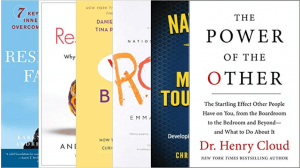 Resilience is defined as the process and outcome of adapting to challenging life experiences, by adjusting mentally, emotionally or behaviorally (APA Dictionary of Psychology, n.d.)
Resilience is defined as the process and outcome of adapting to challenging life experiences, by adjusting mentally, emotionally or behaviorally (APA Dictionary of Psychology, n.d.)
Resilience is something that is within each of us, but how we use it, and how well are key determinants in our overall wellbeing and quality of life.
“Of all the virtues we can learn, no trait is more useful, more essential for survival, and more likely to improve the quality of life than the ability to transform adversity into an enjoyable challenge.”
Mihaly Csikszentmihalyi (Greitens, 2015)
There are many books out there about resilience, how it’s characterized, tools and techniques or skills to become more resilient, examples of someone or something being resilient. In a recent search, a total of 20 resilience books were collated and summarized.
Before you read on, we thought you might like to download our 3 Resilience Exercises for free. These engaging, science-based exercises will help you to effectively deal with difficult circumstances and give you the tools to improve the resilience of your clients, students or employees.
This Article Contains:
What are the Best Resilience Books Out There?
When looking for a book on resilience you are able to categorically narrow down to the specifics. There are books that deal with traumas; books specialized for women, resilience for the workplace.
When searching the web for the best resilience books available you’ll find a mix of self-help, evidence-based and researched analysis and techniques, testimonials, examples, and definitions of resilience.
Here is a list of some of the best resilience books:
1. The Resilience Factor: 7 Keys to Finding Your Inner Strength and Overcoming Life’s Hurdles – Karen Reivich and Andrew Shatte Ph.D.
Reivich and Shatte, authors and resilience coaches, use science and heavily researched Cognitive Behavioral Therapy (CBT) to provide techniques to strengthen one’s own resilience to handle life’s blows in both short and long-term situations.
The Resilience Factor provides worksheets in the book and online to work through learning the techniques.
CBT is used to deal with stressful situations and teach skills for improving resilience.
These skills are:
- Emotion regulation
- Impulse control
- Empathy
- Causal analysis
- Self-Efficacy
- Reaching out
The readers will first assess their own resilience. Then throughout the book, the readers will learn how to:
- Cast off harsh self-criticisms and negative self-images
- Navigate through the fallout of any kind of crisis
- Cope with grief and anxiety
- Overcome obstacles in relationships, parenting, or on the job
- Achieve greater physical health
- Bolster optimism, take chances, and embrace life (Reivich and Shatte, 2017)
Find the book on Amazon.
2. Resilience: Navigating Life, Loss, and the Road to Success – Lisa Lisson
Lisson’s autobiography is a book meant to inspire its readers by relating to the author who not only goes through an extreme high to an extreme low, but also learns how to lead and maintain everything else that is good in her life.
Lisson is a high-powered executive for FedEx Canada when all of a sudden her husband has an extreme medical emergency and everything changes.
All the while though, Lisson still has her job to take care of and four children that depend on her as their mother and caretaker. It’s a good look at how life isn’t just about hardship and how things are so terrible but also about how you can take anything that comes at you, and keep moving. Never stop moving and never stop living. (Lisson, 2017)
Find the book on Amazon.
3. The Micro-Resilience: Minor Shifts for Major Boosts in Focus, Drive, and Energy – Bonnie St. John and Allen P. Haines
St. John and Haines, combat the all too well-known, “drive until you drop” approach of getting things done by changing and challenging that perspective and helping you to create a new perspective, purpose, and meaning to your life.
The authors have developed “The Five Micro-Resilience Frameworks,” a methodology that is made from psychology, physiology, and neuroscience, in order to guide the reader to:
- Refocus your brain: Use your brain more efficiently
- Reset your primitive alarms: Stop being hijacked by your primitive impulses
- Reframe your attitude: Spiral into the positive rather than the negative
- Refresh your body: Increase your fuel efficiency
- Renew your spirit: Tap into the power of your purpose
This methodology was tested for 5 years on thousands (executives, stay-at-home moms) who found the “restorative techniques quick and easy to integrate into the busiest of schedules.” The authors use “dozens of entertaining real-life stories to illustrate the effectiveness of the tools.” (St. John and Haines, 2017)
Find the book on Amazon.
4. Resilience: Why Things Bounce Back – Andrew Zolli and Anne Marie Healey
The authors, Zolli and Healey, take an ecological and social approach and compare polar opposites of life, i.e., “coral reefs of Palau to the back streets of Palestine,” in discovering what makes one more resilient than another.
In other words, bouncing back from adversity could be more about perspective.
The authors look at examples “from business planning to social development, from urban planning to national energy security – circumstances that affect us all,” to show how taking a “resilient” perspective can change the outcome of how well an entity can bounce back and essentially survive. (Zolli and Healey, 2013)
Find the book on Amazon.
5. Unbroken: A World War II Story of Survival, Resilience, and Redemption – Lauren Hillenbrand
Hillenbrand takes the readers on a journey through a young man’s life, Louie Zamperini, who suffered traumatic catastrophes and went from a juvenile delinquent to an Olympian to an Army hero.
Zamperini faced so much and yet still was resilient through every trauma. (Hillenbrand, 2014)
Find the book on Amazon.
6. Room – Emma Donoghue
Donoghue takes us to a much more vulnerable place of feeling fear, helplessness, and lack of control in Room.
The readers will learn about a little boy named Jack who lives in a room with his Ma. They are only allowed to be in this one room, and Ma has been in this room for 7 years against her will, but as the story unfolds we see it is not forever.
The story is told from the point of view of the little boy, and perfectly describes a story of resilience from those that are most naturally resilient, children. (Donoghue, 2011).
Find the book on Amazon.
7. Big Magic: Creative Living Beyond Fear – Elizabeth Gilbert
The title may not strike you as a resilience book but it absolutely is. This book is so good at taking the reader through a conversation with your own mind via the author, Elizabeth Gilbert’s experiences.
When we fail, or something doesn’t go right – whether it be a job, an entrepreneurial venture, a marriage, we often think that type of job, venture, or perhaps marriage just wasn’t for me or I couldn’t get through it.
Rather what we really need to do is learn from it and keep going. It can be in a completely different direction but to not lose hope on the venture is the best way to live without fear.
Gilbert urges the reader to use your own creativity as a tool of letting go and moving forward, some of the best advice she gives is:
“Do whatever brings you to life, then. Follow your own fascinations, obsessions, and compulsions. Trust them. Create whatever causes a revolution in your heart.”
“You can measure your worth by your dedication to your path, not by your successes or failures.”
“It seems to me that the less I fight my fear, the less it fights back. If I can relax, fear relaxes, too.”
Should you purchase the audiobook, it is a great listen when you are driving or getting ready for your day. It’s that little voice that we should have in our head that we can be creative and it can be without fear. (Gilbert, 2016)
Find the book on Amazon.
8. The Yes Brain: How to Cultivate Courage, Curiosity, and Resilience in Your Child – Daniel J. Siegel and Tina Payne Bryson
Siegel and Bryson provide guidance on how to set children on a path to be creative, compassionate, and ever resilient. The guide “provides parents with skills, scripts, ideas, and activities to bring kids of all ages into the “yes” state:
- The four fundamentals of the Yes Brain – balance, resilience, insight, and empathy – and how to strengthen them
- The key to knowing when kids need a gentle push out of a comfort zone vs. needing the ‘cushion’ of safety and familiarity
- Strategies for navigating away from negative behavioral and emotional states (aggression and withdrawal) and expanding your child’s capacity for positivity” (Siegel & Payne Bryson, 2018)
In short, this book provides parents with a methodology to better their own behavior to develop their children’s brains to be more receptive and creative personality.
Find the book on Amazon.
Best Military Inspired Resilience Books
There are multiple books out there that take inspiration from being in the United States Military and the type of mental toughness and resilience that is required and, in turn, how it can be applied to our everyday lives.
1. Resilience: Hard-Won Wisdom for Living a Better Life – Eric Greitens Navy SEAL
In Greitens’ book, he writes as if he is talking to us, the reader, and trying to walk us through our own hurdle(s), and making something really big and unique feel very small and common, and less of wall and more of a window or door.
Grieten is amazing at talking to the audience personally by sharing letters and phone calls between himself and a former fellow Navy SEAL, who was struggling with PTSD, family/home life, and alcohol.
It almost wouldn’t be fair to describe this book as a guidebook, it’s really a conversation between author and reader on how to move past a hard time in very simple talk and with great examples from his life and from Greek and ancient mythology.
The lessons are to look at how to build purpose, deal with pain, live and treat ourselves and others with compassion, find and harness a vocation and mentor, and of course to make happiness, plus even more.
A key lesson in this book is that there is no “going back” to the old way once you have experienced hardship, you are not the same person and you must accommodate for this new experience and the person you now are by moving through the hardship.
When you experience life-altering pain, whether it be emotional, physical, spiritual or if you’re lucky, a combination – you find that there is no going back to the way life used to be but rather you are on a journey to figure out everything again, almost as if you are starting over and renewing yourself.
Or as Greiten’s puts it,
“Life’s reality is that we cannot bounce back. We cannot bounce back because we cannot go back in time to the people we used to be. The parent who loses a child never bounces back. The nineteen-year-old marine who sails for war is gone forever, even if he returns. ‘What’s done cannot be undone,’ and some of what life does to us is harsh.”
(p. 72)
Resilience is often defined as bouncing back but it really can be just to keep pushing forward in the most conscious and compassionate way. You cannot bounce back from hardship. You can only move through it. There is a path through pain to wisdom, through suffering to strength, and through fear to courage if we have the virtue of resilience.
Greitens borrows from his own military training to give examples throughout this guidebook to use as a framework for each of their adversities. For instance, fear and anxiety are usually the first hurdles someone has to face, and this book gives the tools needed to develop a stronger core of resiliency.
In practical terms, Greiten gives his comrade, and us the reader, Models, or examples of people living through their pain, and finding their purpose, in other words, being resilient.
I think often people think of resilience as this shiny medal, maybe its something with the phonetics of the word itself, but resilience is not shiny at all, it’s really plain and simple and everyday life of figuring out what is next and how does the next thing make me feel, if it makes me feel good then I want to do more of that.
Change your career, eat healthier, anything to evolve and take the hardship you had in life out of what you learned from it. (Greitens, 2016).
Find the book on Amazon.
2. Navy SEAL Mental Toughness Book: A Guide to Developing An Unbeatable Mind (Special Operations Series) – Chris Lambertsen
Lambertsen’s book is widely used in the Navy and in other audiences for it’s easy to read and the way he can relate Navy SEAL experiences to everyday real-world situations.
This book teaches methods utilized by Navy SEALs to develop mental toughness and self-confidence to obtain whatever your goals are.
The book covers multiple topics including:
- Navy SEAL Training Overview
- UD/S and Hell Week: Lessons you can Use!
- Earning the Trident Every day: How SEALs Sustain Excellence
- SEAL Missions: An inside look at how SEALS operate
- The 23 SEAL Success Traits and Habits
- Mental Toughness as Defined by the SEAL Community
- The Limbic System & The Physiology of Fear
- Seven Fear Suppressing Techniques used by Navy SEALs
- How to develop a “Refuse to Lose” Mindset
- The process of becoming mentally tough
- Thoughts on Becoming an Extraordinary Person! (Lamberton, 2016)
Find the book on Amazon.
Top 10 Best Books on Mental Strength
As mentioned above, there is a path through pain to wisdom, through suffering to strength, and through fear to courage if we have the virtue of resilience. These books celebrate the mental strengths that overcome adversity.
1. The Mental Toughness Playbook: The Tips You Need to Conquer Adversity, Develop Mental Strength, & Think Like a Warrior – Malcolm Smith
Smith takes the authors through a catalog of famous people throughout our history that displayed and knew how to be mentally tough.
From Bruce Lee, Marcus Aurelius, Seneca, to Malcolm X, Smith provides the know-how, examples, of how to create and maintain a strong mental fortitude in order to face any of life’s challenges. (Smith, 2016)
Find the book on Amazon.
2. Option B: Facing Adversity, Building Resilience, and Finding Joy – Sheryl Sandberg and Adam Grant
Sheryl Sandberg was the VP of Global Online Sales at Google, and the COO of Facebook when suddenly her husband died to leave her and their children to go on with life without him.
She got sage advice from “Adam Grant, a psychologist at Wharton, who told her that there are concrete steps people can take to recover and rebound from life-shattering experiences. We are not born with a fixed amount of resilience. It is a muscle that everyone can build.”
“Option B illuminates how to help others in crisis, develop compassion for ourselves, raise strong children, and create resilient families, communities, and workplaces.” (Sandberg & Grant, 2017)
Find the book on Amazon.
3. Rising Strong: How the Ability to Reset Transforms the Way We Live, Love, Parent, and Lead – Brené Brown
Social worker and Ph.D. Researcher, Dr. Brown, look at what the common characteristics people have that make them resilient. Dr. Brown believes that
“vulnerability – the willingness to show up and be seen with no guarantee of outcome – is the only path to more love, belonging, and joy.” (Brown, 2017)
Find the book on Amazon.
4. Learned Optimism: How to Change Your Mind and Your Life – Martin E.P. Seligman
Dr. Seligman, the father of Positive Psychology, discusses how optimism can create a better quality of life and how anyone can achieve this.
The book provides techniques to get out of the habit of not following through or saying “I give up” and how to explain your behavior and the experiences you’ve had in a more positive way.
The hope is that these skills lessen depression, increase your immune system’s effectiveness, and enhance your potential to ultimately make you a happier person. (Seligman, 2006)
Find the book on Amazon.
5. The Power of the Other: The startling effect other people have on you, from the boardroom to the bedroom and beyond- and what to do about it – Henry Cloud
Dr. Cloud uses evidence from neuroscience and time and work he spent with leaders, to teach the reader that our relationships with others are our most vital resource because it can either spur us on or it can limit our growth.
Therefore make a conscious decision in what type of relationship you have with each person you interact with. (Cloud, 2016)
Find the book on Amazon.
6. Mental Training for Peak Performance, Revised & Updated Edition – Steven Ungerleider and Nick Bollettieri
Ungerleider, a sports psychologist discusses how you have to first win mentally before you can win physically. Especially this book goes over mental strength brain exercises the reader can engage in to do better at whatever the physical performance is.
These techniques include:
- Building confidence with affirmations and self-talk
- Clearing your mind with breathing and meditation
- Maximizing performance with mental snapshots
- Improving your game with guided imagery
- Using visual rehearsal to fine-tune your style
- Tapping into the power of dreams (Ungerleider, 2015)
Find the book on Amazon.
7. Discipline Equals Freedom (Field Manual) – Jocko Willink
Willink took his time of being in the Navy SEALs to teach the readers that there are ways to get through hard times, but without discipline, there will not be progress.
Willink covers strategies and techniques to overcome weaknesses, procrastination, and fear, and specific physical training for workouts dependent on the readers level, and advice on sleep and eating habits in order to optimize performance. (Willink, 2017)
Find the book on Amazon.
8. The Invitation to Love: Recognizing the Gift Despite Pain, Fear, and Resistance – Darren Eric Pierre
Pierre takes a look at mental toughness from the perspective of love by segmenting his book into three sections:
- Living in your truth,
- Perseverance, and
- Having a healthy disregard for the impossible.
Basically, the book talks about living for you, and to expect and challenge the challenges that come your way (i.e., never give up!), and to always have a can-do attitude! (Pierre, 2015).
Find the book on Amazon.
9. Grit: The Power of Passion and Perseverance – Angela Duckworth
Duckworth uses real-life experiences from cadets at West Point, to teachers, and even National spelling bee finalists to show the readers where passion and perseverance can take them. (Duckworth, 2015)
Find the book on Amazon.
10. Unbeatable Mind: Forge Resiliency and Mental Toughness to Succeed at an Elite Level – Mark Divine
Divine aims to develop the reader to strengthen their thinking, mental state, and self-development with skills that resemble that of warrior development.
The book aims to help with developing mental clarity, concentration, awareness, leadership authenticity, intuition, offensive “sheepdog” mindset, and warrior spirit. (Divine, 2015)
Find the book on Amazon.
A Take-Home Message
I hope this piece provided you with some strong summaries of books that aim to strengthen and understand your resilience and mental toughness. There are definitely different perspectives out there on what resilience is, and who has it, and what it looks like. But to each their own.
Resilience is something that we can learn about without end, and these books are a great start as they have many different perspectives and foundations.
The big takeaway is that resilience is not something that you have that can be of service to you so that once you go through a hard time you can bounce back or reshape into “your old self”. No – hard times, traumas, times of weakness and despair, pain – take us to a new place where we must go through those traumas and re-shape ourselves, from what we’ve learned and where we want to go.
Some of the best skills are discipline, perseverance, and having a positive attitude.
If you ever are going through a hard time, when you have your head above water, I hope you can refer back to this piece to find some sage guidance on some really great books out there that offer tools, techniques, and anecdotal experiences to get you where you need to go.
We hope you enjoyed reading this article. Don’t forget to download our 3 Resilience Exercises for free.
- APA Dictionary of Psychology. (n.d.). Resilience. Retrieved from https://dictionary.apa.org/resilience.
- Brown, Brené. (2017, April 4) Rising Strong: How the ability to reset transforms the way we live, love, parent, and lead.
- Cloud, (2016, February 3) The Power of the Other.
- Divine, M. (2015, March 6) Unbeatable Mind: Forge Resiliency and Mental Toughness to Succeed at an Elite Level.
- Donoghue, E. (2011, May 8) Room.
- Duckworth, A. (2015, August 21) GRIT: The Power of Passion and Perseverance.
- Gilbert, E. (2016, September 27). Big Magic: Creative Living Beyond Fear.
- Greitens, E. (2016, May 3) Resilience: Hard-Won Wisdom for Living a Better Life.
- Hillenbrand, L. (2014, July 19). Unbroken: A World War II Story of Survival, Resilience, and Redemption.
- Lamberton, C. (2016, June 25). The Navy Seal Mental Toughness Book: A Guide to developing an unbeatable mind.
- Lisson, L. (2017, October 17) Resilience: Navigating Life, Loss, and the Road to Success.
- Pierre, D. (2015, April 7) The invitation to love; recognizing the Gift despite pain, fear, and resistance.
- Reivich, K. & Shatte, A. (2017, December 27). The Resilience Factor: 7 Keys to Finding Your Inner Strength and Overcoming Life’s Hurdles.
- Sanberg, S. & Grant, A. (2017, April 24). Option B: Facing Adversity, Building Resilience, and Finding Joy.
- Seligman, M.E.P. (2006, January 3). Learned Optimism: How to change your mind and your life.
- Siegel, D.J. & Payne Bryson, T. (2018, January 9). The Yes Brain: How to cultivate courage, Curiosity, and resilience in your child.
- Smith, M. (2016, May 31) The mental toughness playbook: The Tips you need to conquer adversity, develop mental strength, & think like a warrior.
- St. John, B. & Haines, A. P. (2017, February 7). Micro-Resilience: Minor Shifts for Major Boosts in Focus, Drive, and Energy.
- Ungerleider, S. (2005, September 15) Mental Training for Peak Performance, Revised & Updated Edition.
- Willink, J. (2017, October 17). Discipline Equals Freedom: Field Manual.
- Zolli, A. & Healey, AM. (2012, July 10). Resilience: Why things bounce back.
Let us know your thoughts
Read other articles by their category
- Body & Brain (41)
- Coaching & Application (49)
- Compassion (27)
- Counseling (46)
- Emotional Intelligence (23)
- Gratitude (16)
- Grief & Bereavement (19)
- Happiness & SWB (35)
- Meaning & Values (26)
- Meditation (21)
- Mindfulness (42)
- Motivation & Goals (42)
- Optimism & Mindset (33)
- Positive CBT (24)
- Positive Communication (21)
- Positive Education (41)
- Positive Emotions (28)
- Positive Psychology (33)
- Positive Workplace (38)
- Relationships (31)
- Resilience & Coping (33)
- Self Awareness (21)
- Self Esteem (38)
- Software & Apps (23)
- Strengths & Virtues (28)
- Stress & Burnout Prevention (27)
- Theory & Books (42)
- Therapy Exercises (30)
- Types of Therapy (53)
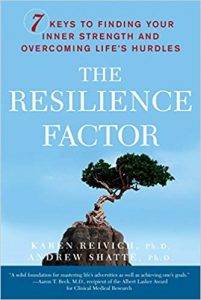
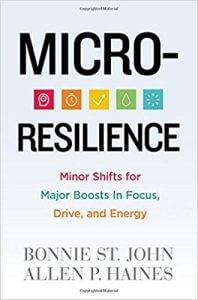
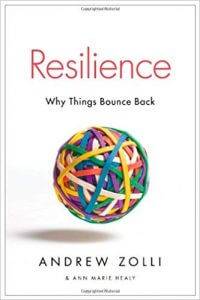
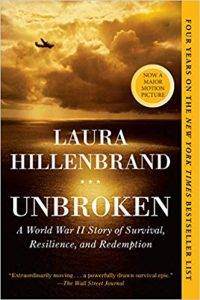
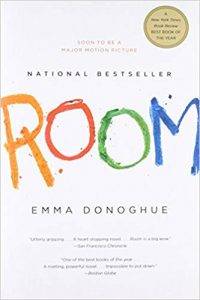
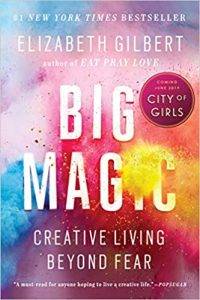
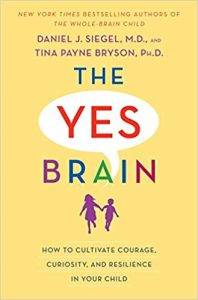
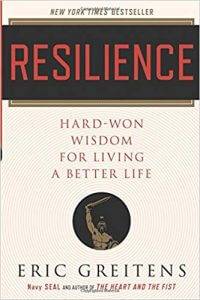
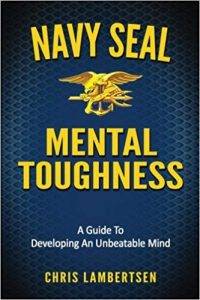
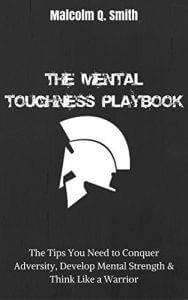
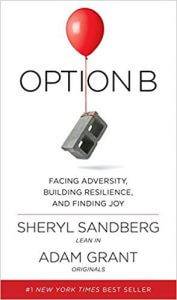
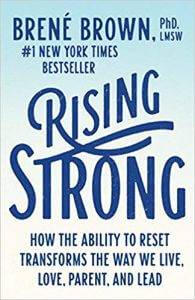
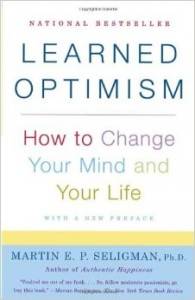
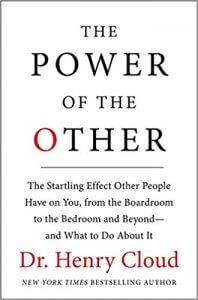
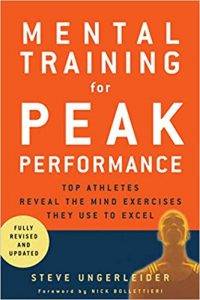
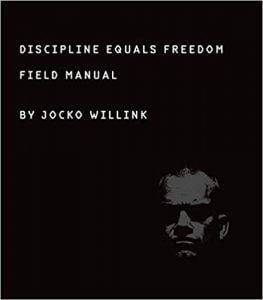
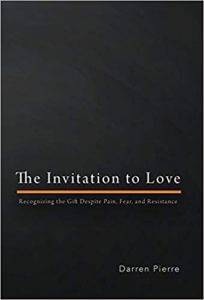
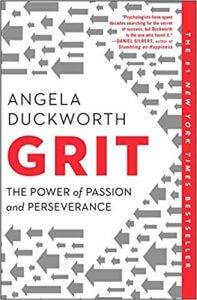
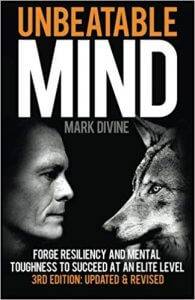



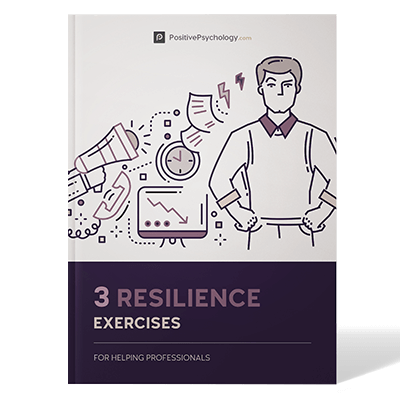
What our readers think
David Goggins’ Can’t Hurt Me is the best.
You seem to have a good list. The books all the reply suggested, I’ve tried, and mostly so bad, couldn’t get past first chapter. Try your list. What happen in your life that lead you to read these books? Are you good now? What are you reading these days? 🙂
any fiction books any of you would suggest? classics included 🙂